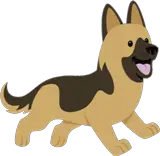Introduction
The Sporting Lucas Terrier is a dog breed that charms many with its distinctive looks and spirited nature. Steeped in history and rich in character, this breed is truly one of a kind. In this guide, we’ll dive deep into understanding the breed, from its origins to its needs.
| Aspect | Details |
|---|---|
| Origin | United Kingdom |
| Size | Compact, usually weighing between 12-20 pounds |
| Coat Type | Wiry |
| Coat Colors | Tan, Black, Grizzle |
| Temperament | Lively, Friendly, Alert |
| Life Span | Up to 15 years with proper care |
| Dietary Needs | High-quality dog food, portion control |
| Exercise Needs | Regular walks and play sessions |
| Grooming | Regular brushing, occasional trimming |
| Common Health Issues | Hip dysplasia, eye problems |
Physical Characteristics of Sporting Lucas Terrier
Size and weight ranges
The Sporting Lucas Terrier is a compact breed, usually weighing between 12-20 pounds. Their size makes them ideal for both city and countryside living.
Coat type and colors
The breed boasts a wiry coat that can come in a range of colors, from tan and black to grizzle. This coat not only gives them a distinct appearance but also provides protection from various elements.
Typical physical features
With alert eyes, perky ears, and a sturdy build, they are agile and ready for action.
Temperament and Personality of Sporting Lucas Terrier
General demeanor and behavior
Known for their lively and enthusiastic nature, these terriers are friendly and alert.
Interaction with children and other pets
Generally good with children, they can also coexist with other pets if introduced properly.
Distinctive traits and characteristics
Their fearless nature combined with a playful attitude makes them a favorite among many dog lovers.
History and Origin of Sporting Lucas Terrier
Development of the breed
The breed originated in the UK, resulting from a mix of various terrier breeds.
Influential figures in its history
Sir Jocelyn Lucas played a crucial role in establishing and promoting the breed.
Evolution over time
Over time, selective breeding has fine-tuned the breed to its current standard, emphasizing health and temperament.
Health and Longevity of Sporting Lucas Terrier
Common health issues and concerns
Like all breeds, they can have certain health issues, like hip dysplasia or eye problems.
Lifespan and factors influencing longevity
With proper care, these terriers can live up to 15 years.
Proper care to ensure health and vitality
Regular vet checks, a balanced diet, and consistent exercise can ensure a healthy life for the breed.
Dietary Needs of Sporting Lucas Terrier
Recommended food types and nutrition
A balanced diet with high-quality dog food, either commercial or home-prepared, is crucial.
Foods to avoid
Chocolate, grapes, and onions are among the foods that should be kept away from them.
Special dietary considerations
Being a smaller breed, portion control and monitoring for obesity is essential.
Training and Exercise for Sporting Lucas Terrier
Importance of early training
Starting training early can lead to well-behaved adult dogs.
Techniques that work well for this breed
Positive reinforcement techniques such as treat-based rewards or praise work wonders.
Exercise needs and suitable activities
Despite their size, they have high energy levels and benefit from regular walks and play sessions.
Grooming and Care for Sporting Lucas Terrier
Coat maintenance and grooming frequency
Regular brushing and occasional trimming help keep their coat in top condition.
Bathing and skin care tips
Bathing should be done as needed, ensuring that the skin remains free from irritations.
Nail, ear, and dental care
Regular checks and cleaning of nails, ears, and teeth are crucial for overall health.
Breeding and Puppy Care of Sporting Lucas Terrier
Considerations before breeding
Ensuring genetic health and a suitable environment is critical before considering breeding.
Selecting a mate and breeding best practices
Selecting a healthy mate with complementary traits can ensure healthy litters.
Raising puppies and early socialization
The early weeks are critical for puppy development. Socialization and exposure to various environments can help shape a well-rounded dog.
Adoption and Purchase Considerations
Where to find Sporting Lucas Terrier puppies or adults for adoption
Rescue groups, breed-specific shelters, and reputable breeders are excellent sources.
Recognizing responsible breeders
Look for breeders who prioritize health, temperament, and adhere to breeding standards.
Questions to ask when adopting or purchasing
Inquiring about health tests, lineage, and breeder practices can ensure you’re making a wise decision.
Living Conditions and Suitable Environments
Housing needs and considerations
While adaptable to both apartments and homes with yards, ensuring they have enough space to move is vital.
Climate adaptability
They are relatively adaptable but do best in moderate climates.
Ideal living situations
A loving home, whether it’s with a single owner, a couple, or a family, is ideal, as long as their exercise and companionship needs are met.
Common Misconceptions and Myths
Addressing false beliefs about the breed
Contrary to some beliefs, these terriers are not aggressive by nature, but they are spirited and lively.
Setting the record straight
Understanding and proper training can bring out the best in this breed, dispelling many misconceptions.
Community and Resources for Sporting Lucas Terrier
Clubs, associations, and organizations dedicated to the breed
Various regional and national clubs promote the breed’s welfare and standards.
Books, websites, and other resources
Numerous resources provide in-depth knowledge and insights about the breed.
Connecting with other Sporting Lucas Terrier owners
Joining breed-specific forums or social media groups can provide invaluable support and information sharing.
Traveling with a Sporting Lucas Terrier
Preparation and Safety
When planning a trip with your Sporting Lucas Terrier, it’s essential to prepare. This includes packing their favorite toys, a comfortable leash, and sufficient food. Ensuring they’re safe during the journey, whether by car, train, or air, is vital. Carriers or harnesses suitable for their size can keep them secure.
Adapting to New Environments
The adaptable nature of the Sporting Lucas Terrier means they can usually cope well in unfamiliar settings. However, it’s essential to ensure that the new environment is safe and to give them time to acclimatize. A familiar blanket or toy can help comfort them.
Ensuring their Comfort
Always make sure that your terrier has access to fresh water and regular breaks if traveling for extended periods. Keeping their routine as consistent as possible, including feeding and walking times, can help them feel at ease.
Sporting Lucas Terrier in Popular Culture
Media Appearances
While not as commonly seen as some other breeds in movies or TV shows, the distinctive look of the Sporting Lucas Terrier has graced various media over the years. Their lively nature can add a touch of playful energy to scenes.
Notable Sporting Lucas Terrier Owners
Some celebrities and notable figures have chosen the Sporting Lucas Terrier as their companion, further increasing the breed’s visibility and popularity.
Famous Sporting Lucas Terriers
Historical and Modern-Day Influences
Throughout history, some Sporting Lucas Terriers have made a name for themselves, either through their achievements in dog shows or their unique stories that captured public attention. Today, with the power of social media, many terriers have amassed a following of their own, showcasing their daily adventures and antics.
Conclusion
Understanding the Sporting Lucas Terrier goes beyond its physical appearance. By delving into its history, needs, and characteristics, we can truly appreciate and care for this remarkable breed. Whether you’re an existing owner or considering becoming one, this guide aims to equip you with comprehensive knowledge for a fulfilling journey with this spirited terrier.


